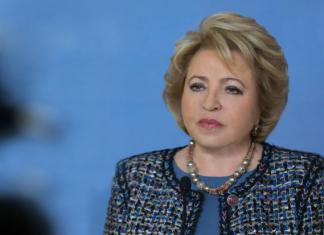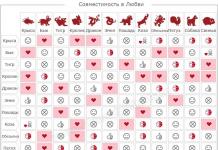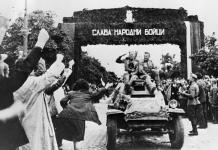Preparations for the 2016/2017 heating season began throughout the country immediately after the end of the previous one, back in March-April. Such early action is truly necessary. The likelihood of emergency situations is high just during the peak season, with a significant drop in temperature and sudden changes. But an accident on the heat supply line can cut off the supply to several apartment buildings straightaway. The failure of the boiler house will leave a huge number of citizens without heat, including residents of an entire city district.
Approximate data is already known on increasing tariffs for 2016/2017: from 3 to 7% depending on the region. However, the authorities plan to focus their main efforts on combating defaulters to reduce costs and thereby minimize the need to increase payments for conscientious citizens.
How is the preparation going?
First of all, a work plan is drawn up based on the results of faults identified during the ending period. An estimate for allocating funds from the budget is approved. Then a thorough inspection of heating networks and boiler rooms is carried out. In mid-May, a test launch of the system is carried out. This allows you to eliminate all problems identified experimentally in a high-quality manner and in a timely manner. Additional important element is to conduct exercises aimed at practicing the operational response to various emergency and emergency situations.
How do authorities control the process?
After completing all preparatory activities, it is necessary to ensure that the heat supply network of each district is fully prepared and document this fact. The administration appoints a special commission that checks the readiness of consumer heat and power equipment and each organization providing heat supply in the territory under its jurisdiction. Next, Rostekhnadzor monitors the readiness of administrations and issues a passport of the district’s readiness for the 2016/2017 heating season.

When does the 16/17 season start?
Basic standards are established by Federal legislation; until recently, the deadline for starting heating was October 15. However, significant differences were taken into account climatic zones on the territory of the country. Therefore, relevant for heating season 2016/2017 the legislative framework establishes that regional authorities independently decide final decision about when it will be necessary to supply heat. But this moment is regulated not by the calendar date, but by the “overboard” temperature. The minimum five-day threshold of +8° C can only be increased, this serves as a guarantee of ensuring comfortable conditions for citizens.
First of all, heat supply is restored in medical, educational and children's institutions. In regions with the most harsh climate this takes place on September 1st. Therefore, this date can be taken as the beginning of the 2016/2017 heating season in Russia. In fact, the launch of heating networks in various cities differs, moving away in the south until mid-November. For the heating season 2016/2017, St. Petersburg and Moscow kept the threshold value at +8° C.
How to influence the quality of heating?
Citizens can independently find out all the aspects of interest on the government services portal. Since July 2016, organizations responsible for water, electricity and heat supply are required to post comprehensive information about tariffs, terms repair work, infrastructure readiness for winter.
In some new buildings, individual boiler rooms and thermostats are installed, however, these are pleasant exceptions. Most urban residents use centralized heating. Therefore, to create comfortable microclimate In your apartment, you must first of all thermally insulate it well. We recommend installing good double glazing and doors.
16.03.2017 19:45
The 2016-2017 heating season is coming to an end in Moscow and St. Petersburg.
The end of the 2016-2017 heating season will depend on weather and meteorological conditions. If within 5 days the outside air temperature exceeds + 8 degrees Celsius, then the heating is turned off.
For example, according to the archive of heating shutdown schedules in residential buildings Moscow, the earliest heat outage was April 22, 2012, and the latest May 10, 2007:
The schedule for turning off hot water in Moscow in 2017 will be available in the coming days; the schedule for turning off hot water in 2016 can be found
According to the “Rules for the provision utilities" and "GOST R 51617-2000. State standard Russian Federation.
Housing and communal services. General technical conditions.":
◾In residential areas the temperature should not be lower than +18 °C
◾B corner rooms residential premises temperature should not be lower than +20 °C
◾In the kitchen - not lower than +18 °C
◾In the bathroom - not lower than +25 °C
◾In the restroom - not lower than +18 °C
◾At night (from 00.00 to 5.00 hours) the air temperature in the apartment can drop by no more than 4 °C
◾B daytime temperature reduction below the standard level is not allowed
During the period when severe winter frosts are replaced by spring warmth, you can see more and more windows in residential buildings open for ventilation. The existing contrast between the temperatures in apartments and outside is such that it creates a feeling of absolute stuffiness. This is especially true for those houses that were built over the last 50 years. Such intense heating during this period significantly affects the amount of utility bills.
Taking into account the fact that in recent years housing and communal services tariffs have shown constant and confident growth (this is especially true for Russian cities with a population of over a million), and now the amounts of payments are gradually exceeding reasonable limits, I would like a clear understanding of when the heating systems will be turned off (especially in the case of , When real need not in it).
According to the current legislation in Russia, the beginning and end of the heating season has clear deadlines.
However, no one is in a hurry to inform citizens about exactly when the heat in their homes will be turned on/off. Every time the townspeople are at a loss when the batteries will become warm (at the end of autumn), and when the batteries will be turned off (in the spring). At the same time, it is impossible to independently predict when the heating will be turned on and off this year (the human factor plays an important role here).
To simplify the lives of citizens, it will be enough to familiarize them with the relevant legislative acts, as well as with statistics from past periods. This will help clarify the question of when to wait for the end of the heating season and turn off the heating in 2017. When, by law, should the heating be turned off? If the house is equipped autonomous system heating, then when to start and when to end the heating season is decided by the residents themselves (the owners of the premises). The only thing that can be negative here is a likely increase in energy consumption, which will naturally entail additional costs. In this case, subscribers decide for themselves what is more important: keeping warm or saving on payments. If the house is connected to the system central heating, then you won’t be able to turn it off yourself. In this case, the heating shutdown date depends on external factors, namely on the average daily ambient temperature.
Thus, the beginning of the heating season occurs in the fall, at a time when for 5 days in a row the temperature does not exceed +8°C. The end of the heating season also depends on the average daily temperature. It should be higher than +8°C for 5 days in a row. Today, there is already a corresponding decree on turning off heating in 2017.
Thus, heating will be turned off on the following dates using the example of large cities: 04/27/2017 - in Moscow; 04/26/2017 – in the Moscow region; 04/28/2017 – in Yaroslavl; 04/29/2017 – in Tula; 04/30/2017 – in Tver; 05/04/2017 – in Novokuznetsk.
Important points about turning off and turning on the heating Immediately with the onset of spring warming, many residents of the capital and other cities begin to be interested in real days heating shutdown. The following points are important here: Average daily temperature - this value takes into account all temperature indicators, both day and night. To turn off the heating, it is necessary that the indicator is not lower than +8°C and remains at this level for at least 5 days.
If this condition is met, you can expect that the central heating will be turned off. Temperature stability - if the condition is met, and weather forecasters indicate that frosts are not expected in the region, then city authorities may decide to turn off the heating. This decision is communicated to the district authorities, who then inform the housing and communal services and give orders to turn off the heating. Who decides when to turn off the heating?
The end of the heating season and the cessation of heat supply to consumers are associated with significant financial and human resource costs.
The feasibility of such a decision is determined by city authorities, focusing on average daily temperatures and weather forecasters’ forecasts for future periods. These indicators are objective, and no others will be taken into account when turning off the heating.
There are a number objective reasons, which indicate that untimely shutdown of centralized heating is not a rational measure.
Experts include the main ones: Peculiarities of operation of heating mains and thermal power plants. It is important here that in order to start centralized heating, all necessary indicators must be displayed on a certain level, which is installed by specialists. In addition, the required difference between pipelines of different levels should be created. And, if in summer there is either no heat in the heating mains at all, or the level is minimal, then in winter period the pressure was registered as 6-7 kgf/cm² with a supply of 3-4 kgf/cm² to the return.
To sufficiently warm up the coolant and create the proper differential, significant energy resources are required. In addition, this process takes quite a lot for a long time. For example, for heating only for small town heating mains carry thousands of cubic meters of coolant. It follows from this that it is simply physically impossible to quickly supply heating (within several hours after weather forecasts).
The end of the 2017 heating season, as well as the beginning of the next one, according to the order, must be accompanied by appropriate service organizations, since these procedures are associated with an increased accident rate.
For these reasons, it is advisable to plan and prepare a work plan in advance service personnel. During this period, all employees of such organizations will have to work in almost emergency mode. It is quite natural that a vacation schedule should be formed taking into account this moment in such a way that engineers and mechanics are fully present at the time of starting/switching off the heating. Statistics of heating shutdowns in recent years in Moscow From the information given above, it is clear that the date of heating shutdown is largely influenced by improvements weather conditions and their stability.
However, in recent years, significant cold snaps have been increasingly observed in Moscow and the Moscow region, which, according to meteorological services, occur in the month of April (when the heating is turned off). Statistics data for the period 2007-2016. they say that in Moscow and the Moscow region the heat is turned off every year at the end of April - beginning of May. During this period, the ambient temperature in this region stabilizes at +10°C.
Let's give exact dates(by year) when the heating was turned off in Moscow in previous periods: 2007 - May 10, 2008 - April 28; 2009 – April 29; 2010 – May 1; 2011 – April 28; 2012 – April 22; 2013 – April 30; 2014 – April 30; 2015 – April 30; 2016 – May 4. Additionally, it should be taken into account that the process of turning off heat begins with production enterprises.
Next, residential buildings are disconnected from centralized heating, and only after that social facilities are disconnected. As a rule, the time interval between the shutdown of production facilities and residential buildings is 4-5 days. Summarizing the above, it should be noted that it is impossible to unambiguously answer the question of when the heating will be turned off in the spring of 2017, since this depends on weather conditions and temperature conditions.
For guidance, you can use last year's figures.
According to preliminary forecasts, you can count on a heat outage at the end of April - beginning of May 2017. Immediately after the required temperature regime is established, the city authorities will make an appropriate decision, and then transfer it to regional entities and local housing and communal services.
Regular subscribers can be advised to monitor the weather, weather forecasts, as well as relevant messages on television and in the media mass media. However, you can expect a heat outage this year after the 20th of April.
The heating season is a very important and difficult process which requires careful preparation. It is mainly carried out in spring and summer. On efficiency and timing preparatory work The start of the 2019-2020 heating season depends.
Preparing for the heating season
The thermal regime in our homes, in social infrastructure institutions, in administrative buildings for various purposes, as well as in enterprises different shapes property in autumn and winter. It is no coincidence that this entire process is strictly controlled by the Department of Fuel and Energy.
To carry out the entire scope of work in a timely manner, we created a special program that clearly indicated the sequence of actions that should be performed. Among the priority points of this program are:
- Creation of commissions in executive authorities whose purpose is to control the preparation, timing and volume of upcoming work.
- Creation of a schedule of preparatory work and control start-up of heating, in order to preliminary identify all defects and, if necessary, eliminate problems.
- Drawing up estimates for all upcoming repairs and replacement of outdated equipment.
When does it start
This question concerns all city residents without exception. In this regard, it should be noted that the date for turning on the heating is adjusted every year. Many people are perplexed why constant timing for connecting heat cannot be established. Everything is explained very simply. Every year temperature regime different in one area or another. Therefore, constant updating of the schedule is required. It is impossible to set uniform deadlines for such big country, like Russia. After all, in some places frosts in Russia begin already in September, and in others only a month later. The process of starting the heating is fixed by law in all details:
Conditions for connecting and disconnecting heat
All of the above work can be regulated differently in each region of the Russian Federation. The table shows the approximate deadlines for completing the work. In each individual subject of the Russian Federation, work can be carried out earlier if the following conditions are met:
- The rules regulate the timing of turning on the heating within the range of October 1-15. Last date- this is the deadline when you need to turn on the heat.
- The second condition for heating supply is an average daily temperature of +8 °C for five days. Delays in turning on the heat can lead to freezing of the system, which will entail considerable additional budgetary costs.
- Turning off the heating system in each region also depends on specific weather conditions. This period begins in mid-April and lasts a whole month. It will depend on the specific forecast of weather forecasters whether you will be disconnected from the heat earlier or later. Agree that it is irrational to supply heat if it is abnormally warm outside. The heating will probably be turned off if it is above +8 °C outside for more than five days.
When will the heating be turned on in Moscow?
The last heating season in Moscow passed with some nuances. The start of the season went without a hitch, but the end heating season I had to do it twice. The first time the heating was turned off in accordance with existing legislation, when stable warmth set in in the capital, and the temperature did not fall below eight degrees Celsius for five days. This happened on May 1st. It should be noted that the weather was very warm these days. It was even recorded as a record heat for this time - over 25 degrees. The utility workers did their job very well and turned off the heat. However, a few days later frosts set in and it snowed unexpectedly. We had to turn on the heating again in hospitals and children's preschool institutions. This situation again raised the question: “What is the best date to turn the heating on and off?” Thus, in the spring of 2017, the preparation schedule for the next heating season shifted.
On May 15, utility services in Moscow reported that all heating networks had been turned off and preparations had begun for the new heating season. All problems that arose during hydraulic testing of the system have already been eliminated and repaired or replaced with a new one. necessary equipment. This result was achieved through the organization of a special repair service, which carried out monitoring on time necessary work and carried out timely elimination of all problems. It is necessary to carry out preventive work in 73 thousand buildings, including 7.5 thousand social facilities and 33 thousand residential buildings. As Deputy Mayor of Moscow P. Biryukov noted, the relevant capital services will be ready for the new season on August 25. It is already known from official sources that the 2019-2020 heating season in the capital will begin in the middle of the first month of autumn.
How St. Petersburg solves heating problems
Preliminary heating switch-on dates northern capital- first ten days of October. However, it must be said that the weather can make adjustments to these plans. The experience of the long previous heating season (242 days) once again confirms this. The most early The start of the heating system is considered to be the first of October. Until the tenth of October, the entire housing stock of the city, as a rule, is always connected to heat. First of all, heat is provided by health authorities, kindergartens, schools and other important facilities of the metropolis. Housing is connected to heat gradually from October 5 to October 10. It gets cold in Northern Palmyra already at the end of September, so many people resort to electric heaters even before the start of the heating season.
Twenty-nine thousand buildings need to be prepared for the upcoming season, of which twenty-three thousand are housing. For these purposes, 66.6 billion rubles will be spent. Budget allocations will reach 13 billion rubles. Last year, similar expenses amounted to a smaller amount - 55.1 billion rubles.
Over 72.5 thousand residential and non-residential buildings, as well as all urban engineering Communication, boiler rooms and central heating points.
As Deputy Mayor of Moscow for Housing and Communal Services Pyotr Biryukov stated at a meeting of the Presidium of the Moscow Government, this will have to be done before August 25, the correspondent reports. Rosbalt".
14 thousand units of cleaning equipment will be prepared for cleaning courtyard areas and road facilities. It is also planned to conduct more than 50 exercises and training to practice interaction during liquidation emergency situations at energy facilities.
According to the deputy mayor, the city has begun preparing heat and gas supply systems for the new heating season. All preparatory work must be completed by August 25, 2017. Readiness for the release of heat to social facilities must be ensured by September 1, and for the mass release of heat - by September 15, 2017.
/ Tuesday, April 4, 2017 /Topics: Housing and communal services

The current heating season in the capital passed without any particular complications. This was announced during a meeting of the Presidium of the Capital Government by Pyotr Biryukov, Deputy Mayor of Moscow for Housing, Communal Services and Improvement.
“We have, in fact, practically passed this heating period, and I must say that not only this year, but also all seven years of the past, we passed without accidents, major accidents on thermal, electrical, and gas networks. This year was no exception. This was facilitated by the work that we began in March last year.", - noted Pyotr Biryukov.
.
.
.
.
.
The past heating season in Moscow passed without accidents or serious incidents. . . . . .
This year the winter in Moscow was snowy and cold. The volume of snow that fell reached 280 cm. At the same time, the number of temperature transitions through “ 0 ” C˚ was moderate - 70 times over the entire period.
In the fall of 2016, a smooth and timely supply of heat to the vast majority of residential buildings and social facilities was ensured. The number of citizen complaints related to problems with heat start-up has decreased by approximately 4 times compared to 2010. During the winter, 25.5 million cubic meters of snow were removed and disposed of from streets and yards. The standard deadline for cleaning streets and courtyards (within 3 days after the end of the snowfall) was largely observed. It may be recalled that until 2011, the standard periods for clearing snow reached 10 days.
Deputy Mayor of Moscow for Housing, Communal Services and Improvement Pyotr Biryukov, during a meeting of the Presidium of the Capital Government, reported that the past heating season in the city passed without accidents.
“The heating season is over, and I must say that over the past seven years we have not had a single major accident on heat, electricity and gas networks. . . . . . This was facilitated by the work that we began to carry out in March last year. ", noted Pyotr Biryukov.
The official clarified that not a single accident occurred in Moscow that led to a long-term outage of electricity, heat, gas or water.
. . . . .
Festive lighting worked properly on the city streets. For the leisure of the townspeople there were skating rinks with artificial and natural ice, as well as winter slides.Petr Biryukov emphasized that over 72.5 thousand residential and non-residential buildings, as well as all city utilities, boiler houses and central heating points will be prepared for the next heating season.
. . . . .
This year, the start-up of heat to social facilities is planned to take place by September 1, and the mass start-up of heat - by September 15.
Deputy Mayor of Moscow for Housing and Communal Services and Improvement Pyotr Biryukov said during the Presidium of the Moscow Government that in the past autumn-winter heating season in the capital there were no accidents.
“Over the past seven years, the city has not had a single major accident on heat, electricity or gas networks. This was facilitated by the work that has been carried out since March last year.”, - explained P. Biryukov.
Last winter, city thermal power plants did not use backup fuel (coal and fuel oil), while heat was supplied to homes in a timely manner, as evidenced by the fact that the number of complaints related to heating problems decreased by approximately four times compared to 2010. And, despite the fact that this year the winter in Moscow was snowy and cold, and a total of about three meters of snow fell on the city streets, regulatory period cleaning of streets and courtyards was largely observed.
By next winter, the capital’s authorities plan to prepare over 72.5 thousand residential and non-residential buildings, as well as all city utilities, boiler houses and central heating units, and will allocate 14 thousand units of cleaning equipment for cleaning courtyard areas and road facilities. In addition, this summer more than fifty exercises and training sessions will be held to practice cooperation in eliminating emergency situations at energy facilities.
. . . . .

. . . . .
This was facilitated by work that began in March last year ", noted Pyotr Biryukov.. . . . .
On the streets of the capital, festive lighting was working properly, skating rinks with artificial and natural ice, winter slides and other recreational facilities were functioning.. . . . .
As Deputy Mayor of Moscow for Housing, Communal Services and Improvement Pyotr Biryukov said during a meeting of the presidium of the capital government, Moscow went through the autumn-winter heating season without accidents.
.
.
.
.
.
All preparatory work must be completed by August 25, 2017
Readiness to launch heat to social facilities must be ensured by September 1, and for mass launch - by September 15, 2017.

“The heating period, in fact, is almost over. This year, as in seven recent years, - without major accidents on heat, electricity and gas networks. This was facilitated by the work that began in March last year.", - said Pyotr Biryukov, Deputy Mayor of Moscow for Housing, Communal Services and Improvement.
. . . . .
During the winter, 25.5 million cubic meters of snow were removed and disposed of from streets and courtyards, holiday lighting also worked properly and winter recreation facilities functioned.As it became known at a meeting of the Presidium of the Moscow Government, on September 1, 2017, heating of social facilities will begin again, and on September 15, there will be a massive start-up of heat. . . . . . In addition, it is planned to prepare 14 thousand units of equipment for cleaning yards and roads.
To practice interaction in eliminating accidents at energy facilities, more than 50 training sessions and exercises will be conducted, which should be completed by August 25.

The heating season of the autumn-winter period 2016-2017 took place in the capital without accidents. Deputy Mayor of Moscow Pyotr Biryukov reported this at a meeting of the presidium of the capital's government.
The results of the last heating season were summed up. During this time, there was not a single accident in Moscow that could lead to a long-term outage of electricity, heat, gas or water.
The city's power system has sufficient power reserves so no backup fuel was used.
In the fall of 2016, heat was promptly released into most residential buildings and social facilities. The number of complaints about problems when starting heat has decreased by approximately four times compared to 2010.
In winter, 25.5 million cubic meters of snow were removed and disposed of from streets and yards. .
.
.
.
.
14 thousand units of equipment will be prepared for cleaning the areas. .
.
.
.
.

Utility workers will complete work on cleaning Moscow after winter by the end of April. This was reported by the TASS agency with reference to the deputy mayor of the capital for housing and communal services Peter Biryukov.
“We started work three weeks ago. Taking into account the weather conditions, we are now on schedule and will put the entire city in order by the end of April. This task will be completed.”, Biryukov said at a meeting of the presidium of the city government.
He also recalled that “ main " A mass cleanup day in Moscow will take place on April 29.
Petr Biryukov also noted uninterrupted operation all gas, water, heat and energy supply systems in the current heating season.
The 2016-2017 heating season in Moscow is taking place without serious network accidents, he added.
.
.
.
.
.
This year was no exception either,” said the deputy mayor.
After the 2016-2017 heating season, preparations for the next one will begin immediately. According to materials prepared for the presidium meeting, more than 72 thousand residential and non-residential buildings will be prepared for the next cold season by August 25. .
.
.
.
.

The winter period in Moscow is coming to an end. As the deputy mayor of Moscow for housing and communal services and improvement stated during a meeting of the presidium of the capital’s government, this year the capital survived the heating season without major accidents or outages in the heat, gas and electricity supply networks, the correspondent reports. Rosbalt".
. . . . .
Let us recall that until 2011 the standard period was 10 days.. . . . .
The autumn-winter heating season 2016-2017 passed in Moscow without accidents, Deputy Mayor of Moscow for Housing and Public Utilities and Landscaping Pyotr Biryukov said at a meeting of the Presidium of the Moscow Government.
.
.
.
.
.
Compared to 2010, the number of complaints about heating problems has decreased fourfold. During the heating season there was not a single serious accident that would have led to a long-term shutdown of heat, gas or water supply.
Biryukov also noted that the standards for cleaning streets and courtyards from snow were generally met, courtyards and streets were cleared on average within three days. In total, 25.5 cubic meters of snow were removed. .
.
.
.
.
In preparation for the 2017-2018 heating season, about 50 exercises will be held in Moscow, and about 14 thousand units of equipment will be trained. More than 72.5 thousand residential and non-residential buildings, as well as city communications, must be prepared for the heating season. .
.
.
.
.
The heating season 2016-2017 is a process that is considered one of the most important in winter time. But in to a greater extent, its preparation in the spring and summer is important, because the level and mode of heat in apartments, houses and municipal enterprises directly depends on what work has been done. As for this particular preparation, all work has already begun and, of course, is controlled by the fuel and energy department.
Stages of preparatory work.
As you know, the heating season is a fairly responsible and important process, and, therefore, it is necessary to approach its implementation fully prepared, and for this a special program is being developed, consisting of specific points of action that must be adhered to.

- 1.Creation of a special commission in the bodies executive power and industry enterprises. The task of this commission is related to monitoring the preparation of all objects, the volume and timing of this work.
- 2.Creation and approval of a schedule for all repair work, preliminary and trial launch, which is considered a test run, as well as the main launch.
- 3. Drawing up an estimate for repair work. As a rule, this document necessarily includes objects that require complete or partial renovation, as well as the cost of all work.
When will the heating be turned on in 2017?
As for the question of when the heating will be turned on, specific dates are also established and approved, which can be shifted or postponed depending on weather conditions. It is worth noting that all these features are spelled out in the law and each region and territory has every right to accept independent decision about this question. But what, you can still highlight and name the deadlines that are prescribed and approved by law.
- First of all, it's March 10th. It is from this moment that work begins on carrying out all hydraulic tests of heat exchangers, which are installed and located in central heating points.
- Secondly, it is May 12th, when the hydraulic tests main and distribution thermal stations.
- Thirdly, this is May 25, that is, the time when all preparatory work must be fully completed, all serious gaps and breakdowns must be identified and eliminated, so that no emergency or unforeseen situations arise during the winter period.
- Fourthly, it is September 15th. This day is considered the start of heat, taking into account all regulatory deadlines. As for residential buildings and a separate category of municipal institutions, the pre-launch period is 2 weeks earlier.
In other words, according to the law, the heating season schedule begins on September 1 and lasts until April 1.
Cities and regions.
Probably everyone will agree with the opinion that each individual region develops its own picture regarding the conduct and implementation of the heating season, which is also characterized by certain features and rules. This feature can be very well observed using the example of several regions, and at the same time seeing how this whole process is carried out locally. 
- 1. Nizhny Novgorod. The government of this region has set itself the task of purchasing 280 cubic meters of firewood and tons of coal, while more than half of the declared heating material will be used to heat sports complexes and educational institutions. The heating season is scheduled for September 1. In order for the preparation to take place as effectively and efficiently as possible, we decided to hold regular and permanent working meetings starting from June 1, for more complete control over the situation.
- 2.Kirov. In this region, heating system Already at this point in time, on average, it is 80% prepared. Regarding the start of heating, according to the law, the season starts if for 5 days in a row the temperature outside stood and remained at + 8 degrees. The entire heating process is carried out in several stages, from September 1 - this educational institutions, and from September 17 - all other buildings.
- 3. Udmurtia. In this region, the supply of heat also depends directly on the whims of nature. As for the preparatory work, this season it is planned to design and build 13 more municipal heat supply facilities, which will significantly relieve pressure and improve the quality of operation of heating complexes.
- 4. Moscow and St. Petersburg. In this metropolis, the flow of heat will begin only when the thermometer begins to drop to 8 degrees and this temperature will last for 5 days. Even if the temperature reaches 5 degrees, it will not be enough to start the heating season. Moreover, as elsewhere, the first objects to be flooded will be social enterprises, that is, kindergartens, schools, hospitals and medical institutions.
The heating season 2016-2017 is one of the hottest and most pressing topics and issues at any time of the year, since this mechanism and system cannot be under strict control and accounting throughout the entire year. So that when cold weather and frost sets in, people feel warm and comfortable in their homes.


























